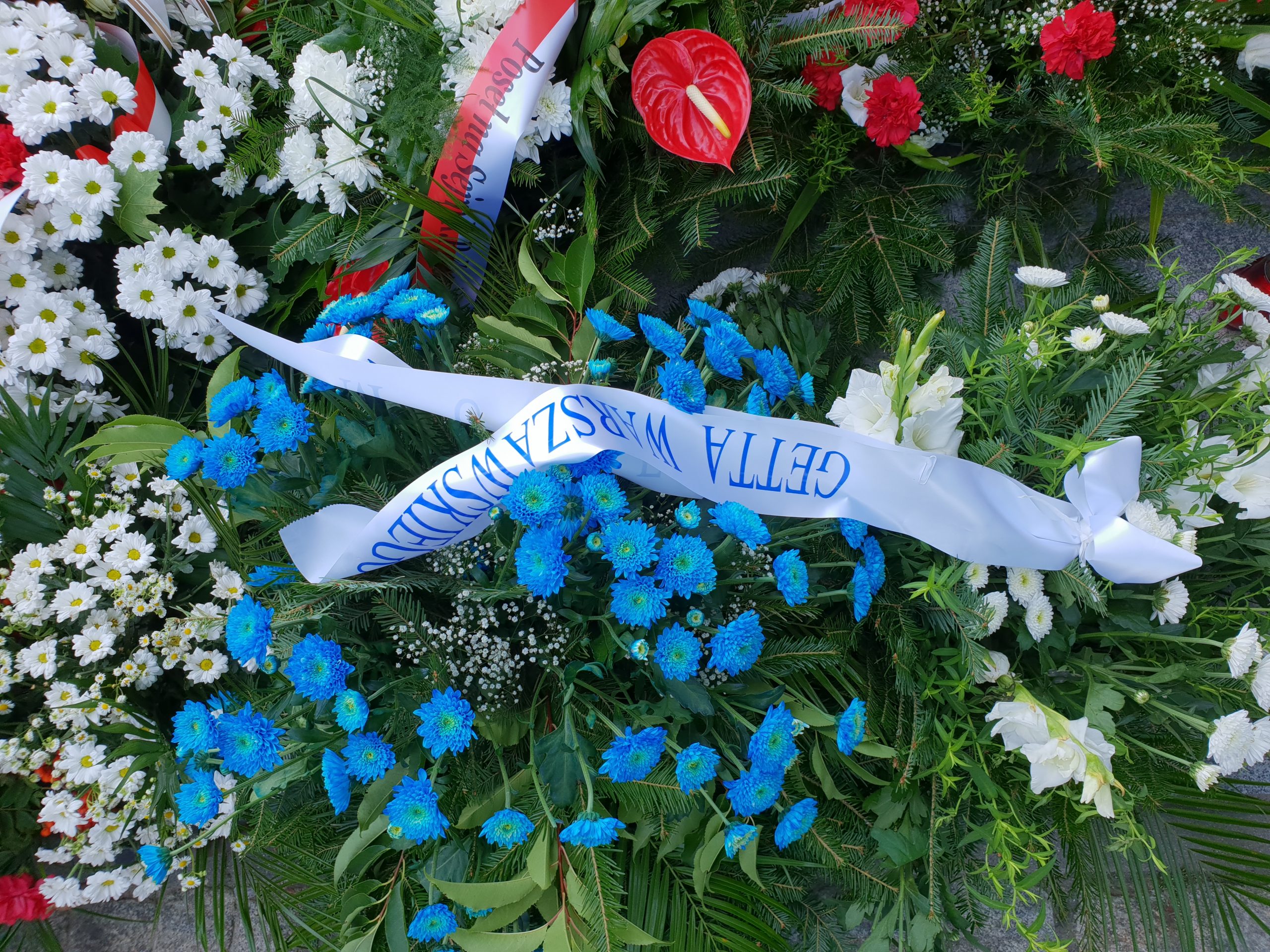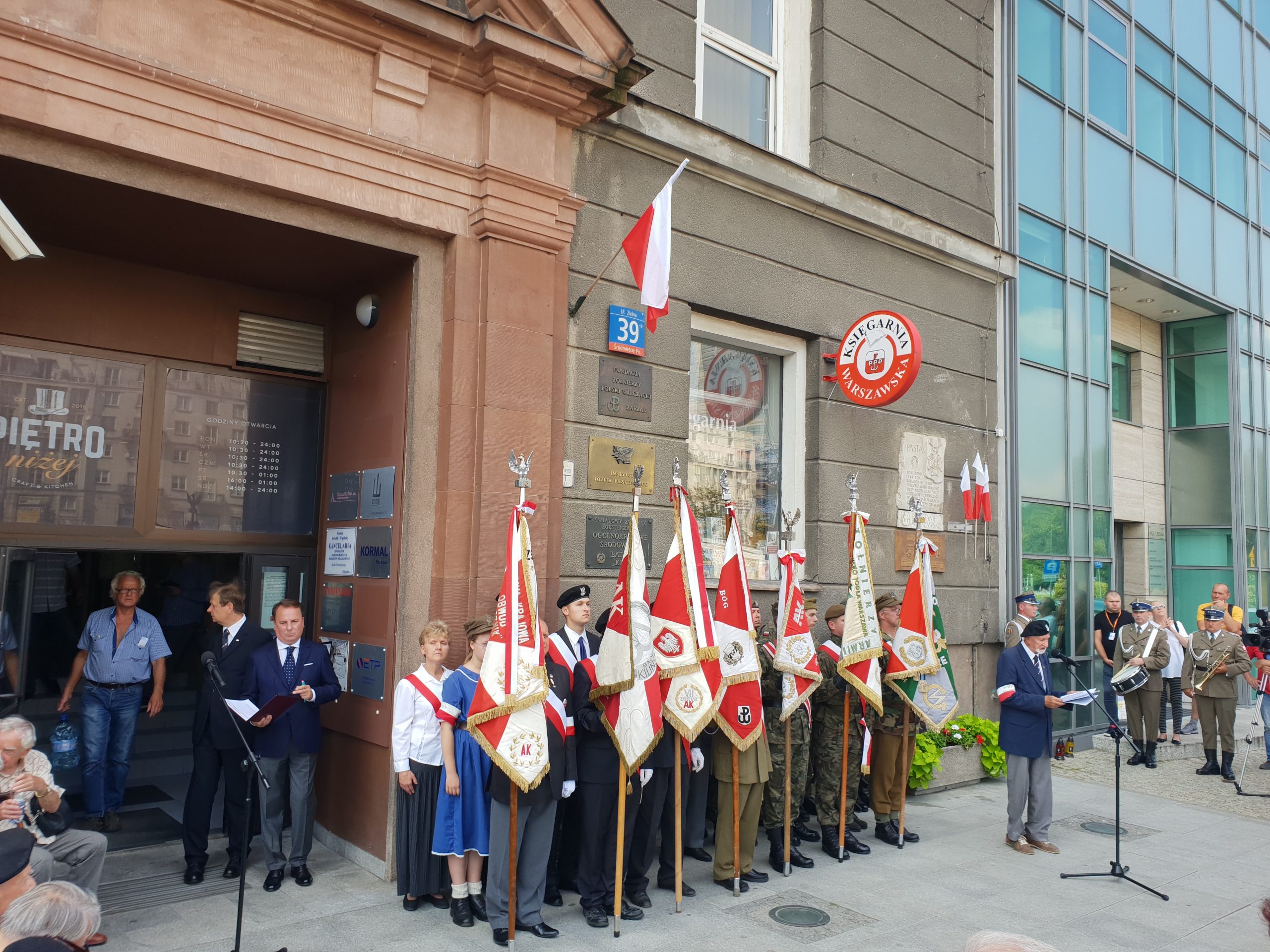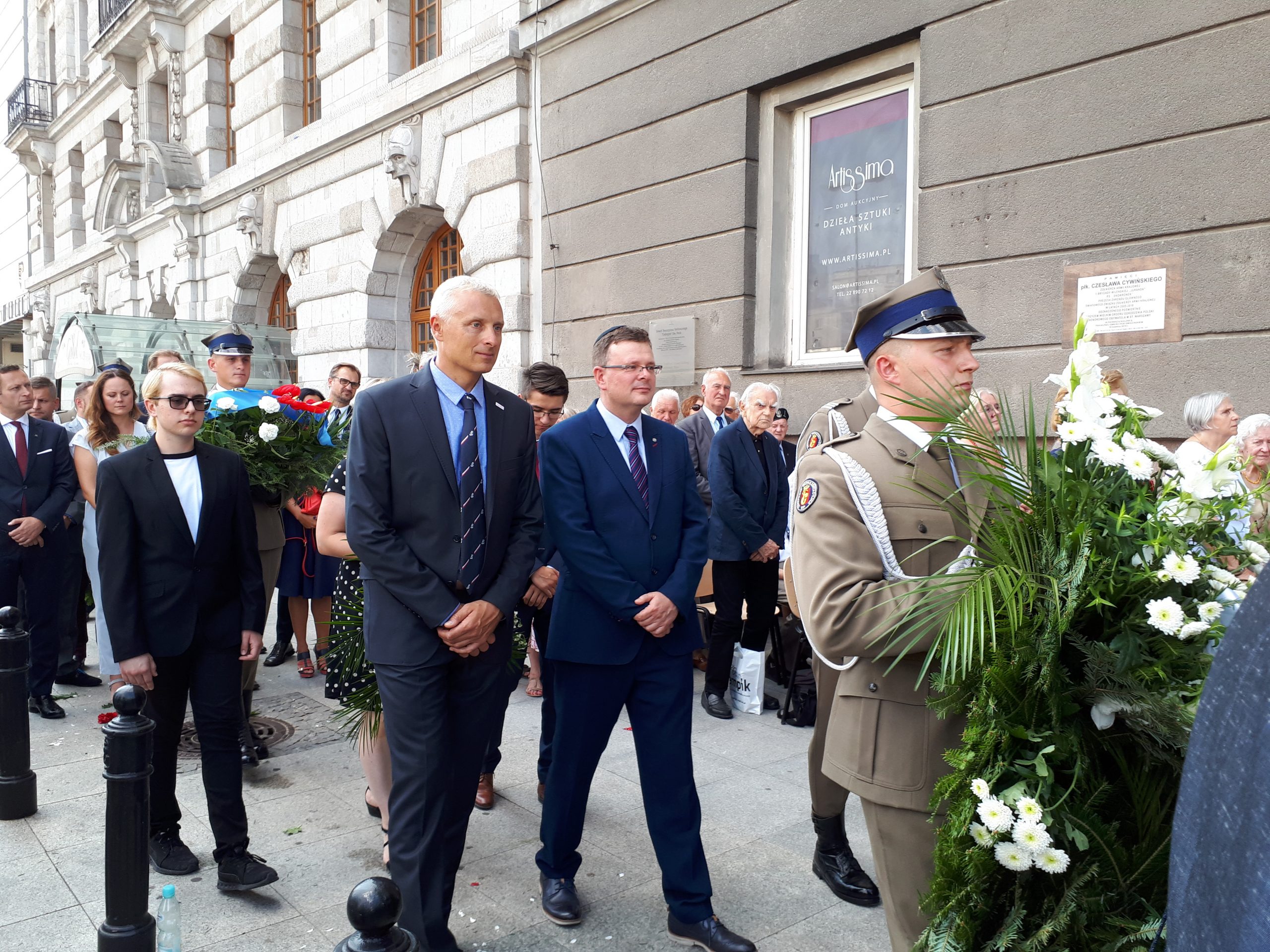Warsaw Ghetto Museum honours the 74th anniversary of the PASTa building.
The historic headquarters of the Polish Joint-Stock Telephone Company at 39 Zielna Street was a building of strategic importance during the Second World War. This is where all calls between Berlin and the local occupying authorities and as far as the German eastern front were connected. The taking of the PASTa building on 20 August 1944 was one of the Warsaw Uprising’s greatest combat achievements.
„The planting of the white-and-red flag on the Polish Joint-Stock Telephone Company building (known as “PASTa”) then towering over Warsaw became a symbol of the insurgents’ heroic courage and of great hope for liberation of the capital city. Fighting for the strategic PASTa building lasted nearly three weeks. In the memory of the insurgents, the capture of this heavily guarded telephone exchange, the largest in this part of Europe, resembled conquest of a fortress,” wrote Prime Minister Mateusz Morawiecki in a letter read out by Jan Józef Kasprzyk, Head of the Office for War Veterans and Victims of Oppression.

The struggles for PASTa began on 20 August at 2:00 am. When 250 insurgents attacked the building from three directions. In order to capture it, they had to set it on fire. They used a fire-engine pump to inject a fuel mix into the building. As the fire enveloped the high-rise, victory of the Poles was sealed. The building remained in Polish hands until the end of the Uprising. A total of 115 POWs were escorted out of PASTs, including seven officers and six wounded soldiers. 36 Germans fell in the defence. The Polish side’s casualties there included 38 fallen and 63 wounded insurgents, not counting the civilian casualties. In addition to capturing PASTa, the „Kiliński” Battalion gained fame for their recapture of neighbouring Prudential and Main Post Office buildings.
Professor Leszek Żukowski, President of the World Association of Home Army Soldiers, reminded those gathered for the occasion that on 9 November 2000 Jerzy Buzek, the then prime minister of Poland, handed symbolic keys to the PASTa building to representatives of a recently established Polish Underground State Foundation. “Since that day we have not only acted as rightful administrators of this facility, but also strove to ensure that it continued as a symbol of the Fighting Poland and a place where veteran insurgents could pass on the idea of struggle for independence to the younger generation,” noted Professor Żukowski.

In a letter to the participants of the ceremony, the Director of the Warsaw Ghetto Museum Albert Stankowski expressed his deeply held conviction that the “tragic time which united the sufferings of Poles and Jews imposes on us the duty of nurturing shared memory and care for surviving heroes. Mindful of the mission of the Warsaw Ghetto Museum, which I am honoured to represent, I assure you of our memory, respect and appreciation for the heroes of those days,” Stankowski added.


